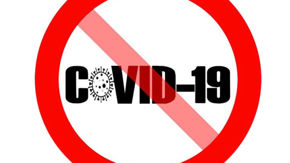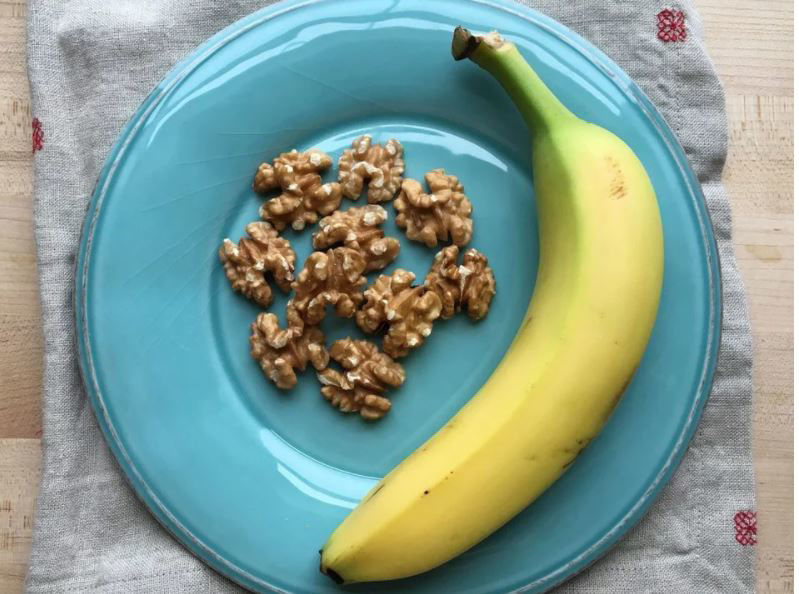5 mins read//
Potassium is known for its healthy abundance in foods like bananas, but many people don't realize just how significant a mineral it is for many critical body functions. Other vitamins and minerals get a lot of attention-sodium, for example-but many of these nutrients rely on a healthy balance with potassium to keep your body functioning properly. That's why it's important to recognize the signs that you're running low so you can correct it.
What Does Potassium Do for the Body?
Potassium is involved in skeletal and smooth muscle contraction and growth, fluid regulation, acid-base balance, and carbohydrate metabolism, among other important functions. It may even reduce kidney stone recurrences.
Potassium is also a key mineral when it comes to blood pressure and heart health; while sodium is associated with a higher risk of hypertension, potassium is thought to act as a vasodilator, lessening the tension within your blood vessel walls. Research shows that people who consume plenty of potassium (through their diet, not just supplements) have a lower stroke risk, too.
For elderly women, studies have shown that consumption of potassium-rich foods may help prevent osteoporosis.
What Causes Low Potassium?
Despite the many vital functions of potassium, most people only consume about half of the recommended 4,700 milligrams (mg) per day, and only 3 percent of older adults meet the adequate intake (AI) for this mineral.
In addition to low daily intake, what else can cause hypokalemia, a shortage of potassium in the blood? As an electrolyte, potassium works with sodium, magnesium, chloride and calcium to conduct electricity in the body. Your potassium balance depends on the levels of these other minerals in the blood, which means a person who consumes a diet high in sodium (which is quite common in today's typical diet) may need more potassium to balance out these mineral levels.
Unlike sodium, for which the body has conservation mechanisms in place, potassium continues to be excreted by the kidneys even if there is a shortage. Certain medications (such as diuretics), as well as conditions involving malabsorption, malnutrition, vomiting, diarrhea and excessive sweating, can also cause low potassium levels. Additionally, tobacco and caffeine can reduce potassium absorption in the body, which can lead to a deficiency. Other people at increased risk for hypokalemia include crash dieters, substance abusers and alcoholics.
What Are the Signs You're Not Getting Enough Potassium?
Symptoms of low potassium include:
- Muscle cramps: Potassium is vital to smooth muscle contraction and growth. When your levels are too low, you might experience cramps, spasms and aches. You can experience these cramps any time of day, but they may occur more during exercise.
- Upset stomach: Low potassium levels can slow down your bowel functions. This can lead to constipation, cramping and bloating.
- Weakness or light-headedness: Low levels of potassium can leave you feeling dizzy, faint or light-headed. Low potassium levels can slow your heartbeat, too, which can result in fainting.
- Lethargy: You might think you're worn down from too much work and too many obligations, but it could be your body's way of telling you that you need more potassium. Low potassium levels can leave you with low energy, exhaustion and chronic sleepiness.
- Irregular heartbeat or palpitations: With low potassium levels, the blood vessels in your body can narrow. This can lead to hypertension or high blood pressure. When the potassium-sodium balance is off, your heart's muscles may also have a harder time pumping, which can lead to an irregular heartbeat or palpitations.
Each of these symptoms can be the result of many other conditions, so it's important to talk with your doctor if you experience any of these.
Can You Get Too Much Potassium?
While many people don't get enough of this vital mineral, some people get too much. Too much potassium results in a condition called hyperkalemia.
It's almost impossible to eat too much potassium-healthy kidneys continually excrete potassium in your urine-so if your levels are too high, it's likely due to other factors or conditions like renal failure, which is common among the elderly. Some conditions make the kidneys less efficient at excreting the mineral, and can lead to a potassium buildup in the body.
Other conditions, such as gastrointestinal bleeding, major infections or rapid protein breakdown, can also increase blood potassium levels. Hyperkalemia causes fewer symptoms than hypokalemia, but the condition can cause nausea, fainting, an irregular or weak pulse or even death.
How Much Potassium Do I Need Every Day?
After the 2015-2020 Dietary Guidelines for Americans highlighted the underconsumption of potassium as a public health concern, the U.S. Food and Drug Administration (FDA) now requires food manufacturers to include potassium on their Nutrition Facts labels to make consumers more aware of its importance. The recommended Daily Value (DV) was also increased from 3,500 mg to 4,700 mg.
So how can you make sure you're getting enough potassium? The good news is, it's easy. Start displacing some of the processed, high-sodium foods in your diet with fruits and veggies; potassium is readily available in most of them, and they're naturally low in sodium. Not to mention, fruits and vegetables are low in calories and high in fiber and other vitamins and minerals. You don't have to go completely plant-based, but adding another one to two servings of fruit or vegetables to your meals can make a difference over the course of a day.
Though bananas have a stellar reputation when it comes to potassium, plenty of other options are even richer in this mineral. As examples, one medium baked potato with skin contains 930 mg (though this doesn't make french fries the best source to up your potassium). One cup of cooked spinach contains 840 mg, and 1 cup of chopped carrots contains 410 mg.
Potassium can also be found in almost all the other food groups, such as dairy (about 350 mg per 1 cup of low-fat milk), grains (1 cup of cooked quinoa contains 320 mg), nuts, beans, meat, poultry and fish. Boiling, processing or canning foods can lower potassium levels, so fresh or frozen is usually a better option.
Many different types of potassium supplements are available for purchase (it's also in multivitamins), but make sure you talk to your doctor before taking any supplements, as hypokalemia and hyperkalemia are serious medical conditions. Additionally, many salt substitutes can raise potassium levels, so check with your doctor before reaching for those as well.











